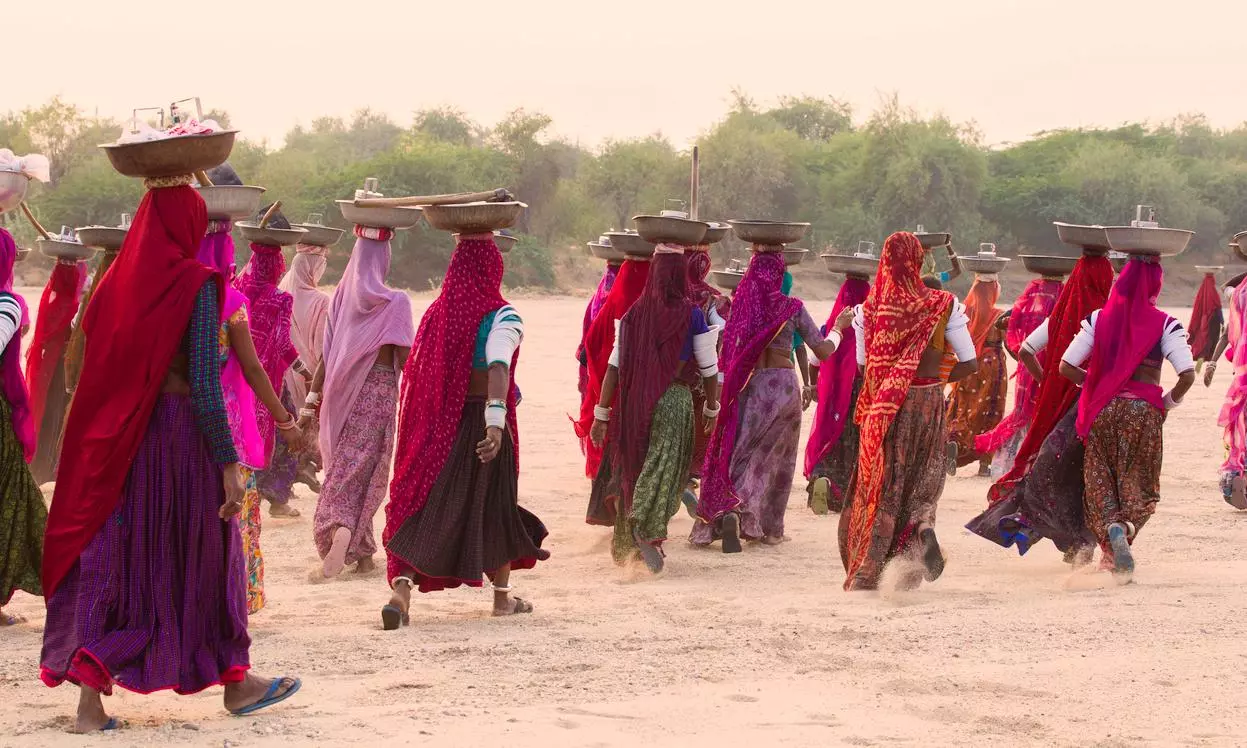
MGNREGA woes | At least pay decent wages, says Parliamentary panel
Committee recommends changing base year for calculating wages to 2014, from the current 2010, to address inflation

India’s biggest welfare programme, the Mahatma Gandhi National Rural Employment Guarantee Scheme (MGNREGS), continues to be poorly implemented. Now, a Parliamentary Standing Committee has flagged these issues, asking the Department of Rural Development to ensure that at least the wage rate under MGNREGS is respectable.
The MGNREGS Act (MGNREGA), a UPA-era scheme that offers a safety net for agricultural households, guarantees 100 days of paid work for such households each year. The BJP government, which had initially pooh-poohed the scheme saying it led the poor to just dig holes, subsequently realised that employment guarantee was a crucial safety net across India’s hinterland and began making a substantial provision in the Union Budget for it.
In the revised estimates for 2023-24, the scheme has been allocated an additional ₹26,000 crore to take the total budget to ₹86,000 crore.
Irregularities galore
But MGNREGA continues to be marred by irregularities. For example, while it guarantees 100 days of employment to each household that seeks employment under the scheme’s architecture, only 2 per cent actually got employment for 100 days in the current fiscal.
In fact, 2023-24 till date has seen the lowest number of households – at just 26.32 lakh – getting the guaranteed 100 days of employment since 2014-15 and the remaining have not found work for even 50 days in a year.
The percentage of households which found 100 days of work, has, in fact not been vastly better in previous years either, with just under 6 per cent in 2022-23 and about 8 per cent households in 2021-22. It is obvious then that an overwhelming majority of households that demand work under the scheme do not get it for the mandatory 100-day period.
The second provision under the scheme, of offering an unemployment allowance if the beneficiary is not offered employment within 15 days of seeking it, is also hardly being followed. In 2023-24, of the 278 households that became eligible for an unemployment allowance, only 20 were given this money.
Parliamentary panel flags insufficient wages
In any case, the wages offered under MGNREGA are, in many instances, below the minimum wage rate of state governments. And, of course, year after year, the payment of funds earmarked for the scheme continues to be delayed by the Centre, with timely payment of the delay compensation also a rarity.
The Parliamentary Standing Committee that has flagged these issues is asking the Department of Rural Development to make sure the wage rate under the scheme is substantial enough to make a difference to the poor rural households.
The panel has said in its report that masons and agricultural labourers earn more in daily wages than workers employed under MGNREGA. Take the case of Madhya Pradesh and Chhattisgarh: each state offered just ₹221 a day under MGNREGA in 2023-24. This despite a panel set up by the government earlier suggesting that the minimum wage for workers under MGNREGA should be ₹375 per day.
Source: nrega.nic.in
While the wages in some states like Haryana and some northeastern states are higher than in Madhya Pradesh, not one state has offered the ₹375 per day rate till now.
Base year revision
Meanwhile, the Parliamentary Committee has also pointed out that using 2009-10 as the base year for calculating the base rate on which the wages are indexed for inflation is not right and that the year should be revised to 2014.
Nikhil Dey from Mazdoor Kisan Shakti Sangthan (MKSS) has highlighted the need for adequate budgetary allocation for MGNREGA, providing the guaranteed number of days of employment to the labourers. While referring to multiple committees set up to examine the issues around MGNREGA, Dey has also said that wages under the scheme should be improved.
The Parliamentary panel has also noted that some states/Union territories have not provided unemployment allowance during “the period from 2018 to 2023. Since it is necessary to provide unemployment allowance to those beneficiaries who were not provided employment, the committee recommends that DoRD (Department of Rural Development) ensure all possible measures including taking up the matter at the highest level with the concerned states/UTs so that the state governments do not fail in their statutory duties to provide the unemployment allowance to the MNREGS beneficiaries.”
Aadhaar woes
Last year, the government made it mandatory to register Aadhaar cards for receiving payments under MGNREGA. This has brought on myriad trouble for workers.
Activists have been pointing out that demand for work remains much higher than the number of households registered under the scheme but due to tens of thousands of deletions – names of registered workers were struck off because they are ineligible for Aadhaar based payment system (ABPS) – the correct number of households demanding work is not reflected in the data.
The reasons for ineligibility are many – mismatch in the spelling of the beneficiary’s name between the MGNREGA database and ABPS or even a gender mismatch. The DoRD itself has admitted that over 14 crore MGNREGA job card holders are not Aadhaar-enabled.
It is a wonder then that the Parliamentary panel has again reiterated its stand, about using alternate mechanisms alongside Aadhaar authentication to ensure wages of eligible workers are not withheld.

